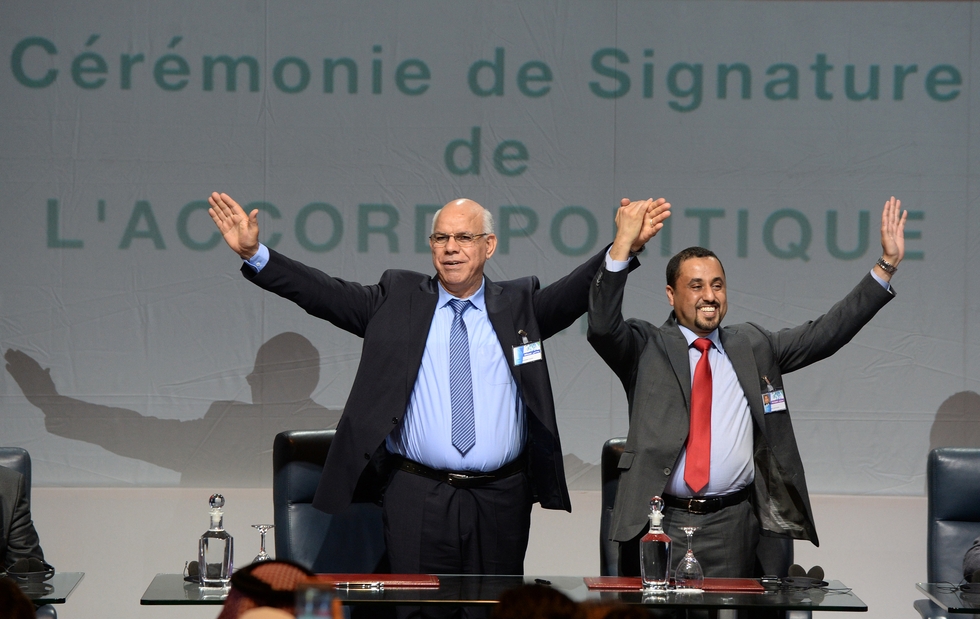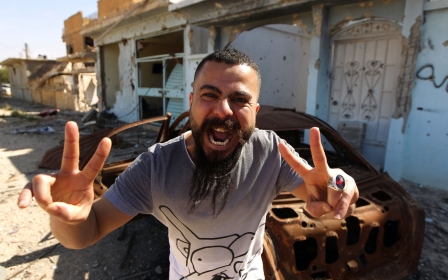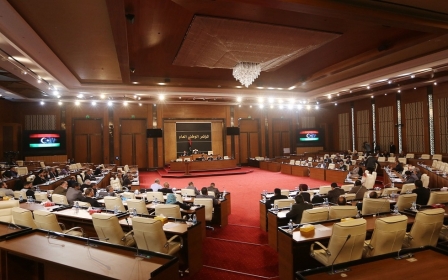Libyan MPs say 'intimidation' prevented unity government vote

A majority of lawmakers from Libya's internationally recognised parliament said on Wednesday that they supported a UN-backed unity government but had faced intimidation before a confidence vote.
The parliament, located in the eastern town of Tobruk, was unable to hold the vote on Tuesday for the new government line-up because it lacked a quorum with less than the required 89 MPs showing up.
In a petition seen by AFP, 100 of the parliament's 176 members said they supported a unity government but were "forcibly prevented" from voting on Tuesday after receiving threats. They did not elaborate about where the alleged intimidation came from but Libya is home to some 2,000 militias and a powerful commander in chief Khalifa Haftar who some analysts have accused of blocking the unity deal in an attempt to secure his post.
"We, 100 members of the House of Representatives, confirm... our agreement on the proposed cabinet line-up," the lawmakers said.
"We need to decide on an appropriate place for a new parliament session as it has become impossible to hold one" in Tobruk.
Oil-rich Libya has had two rival administrations since mid-2014 when the recognised government was forced from Tripoli after a militia alliance including Islamists overran the capital.
The vote comes as forces loyal to Tobruk retook Libya's second city of Benghazi from militants including Ansar al-Sharia and the Islamic State group after two years of fighting.
Reports have since emerged that French special forces aided the military drive and were helping on the ground. While French authorities have not confirmed this, French officials said Paris had launched a probe into the leak.
"The investigation should establish if details covered by defence secrecy rules were revealed in this article," a source close to Defence Minister Jean-Yves Le Drian told AFP.
"When secret operations are taking place, the goal is to ensure they are not revealed for the security of the men and the operations."
A violation of defence secrecy carries a penalty of up to three years in prison and a 45,000-euro ($50,000) fine.
The United Nations has been pushing both sides to back a unity government.
The UN's Libya envoy Martin Kobler said it was "unacceptable" that lawmakers had been threatened.
"Parliamentarians have to decide freely," he said in a statement, demanding that "the parliamentary process is unhindered and conducted in an environment free from threats or intimidation."
A Presidential Council, born of a UN-brokered agreement in December between a minority of members of the rival parliaments, last week put forward a unity government of 18 members.
A previous cabinet line-up of 32 ministers proposed by premier-designate Fayez al-Sarraj was rejected by the Tobruk parliament as being too large.
According to the parliament's website, 99 lawmakers would need to vote in favour of the new unity government for it to receive the legislature's approval.
Libya descended into chaos after the 2011 ouster of longtime dictator Moamer Kadhafi, allowing extremist organisations including the Islamic State (IS) group to gain significant ground.
New MEE newsletter: Jerusalem Dispatch
Sign up to get the latest insights and analysis on Israel-Palestine, alongside Turkey Unpacked and other MEE newsletters
Middle East Eye delivers independent and unrivalled coverage and analysis of the Middle East, North Africa and beyond. To learn more about republishing this content and the associated fees, please fill out this form. More about MEE can be found here.




